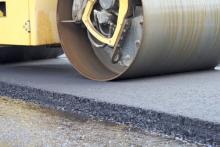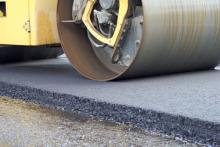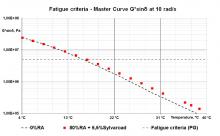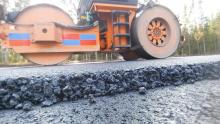Arizona Chemical’s bio-additive allows 100% recycled asphalt for entire road structure
The city of Rotterdam has used an asphalt mix with 100% RAP in all three of its layers, a first for the Netherlands. The road in question is a bike lane, so it won’t be expecting too much of a pounding, but it’s an important step forward for the city’s politicians, asphalt supplier KWS and additive specialist Arizona Chemical.
Arizona Chemical designed its SYLVAROAD RP1000 performance additive with the express aim o
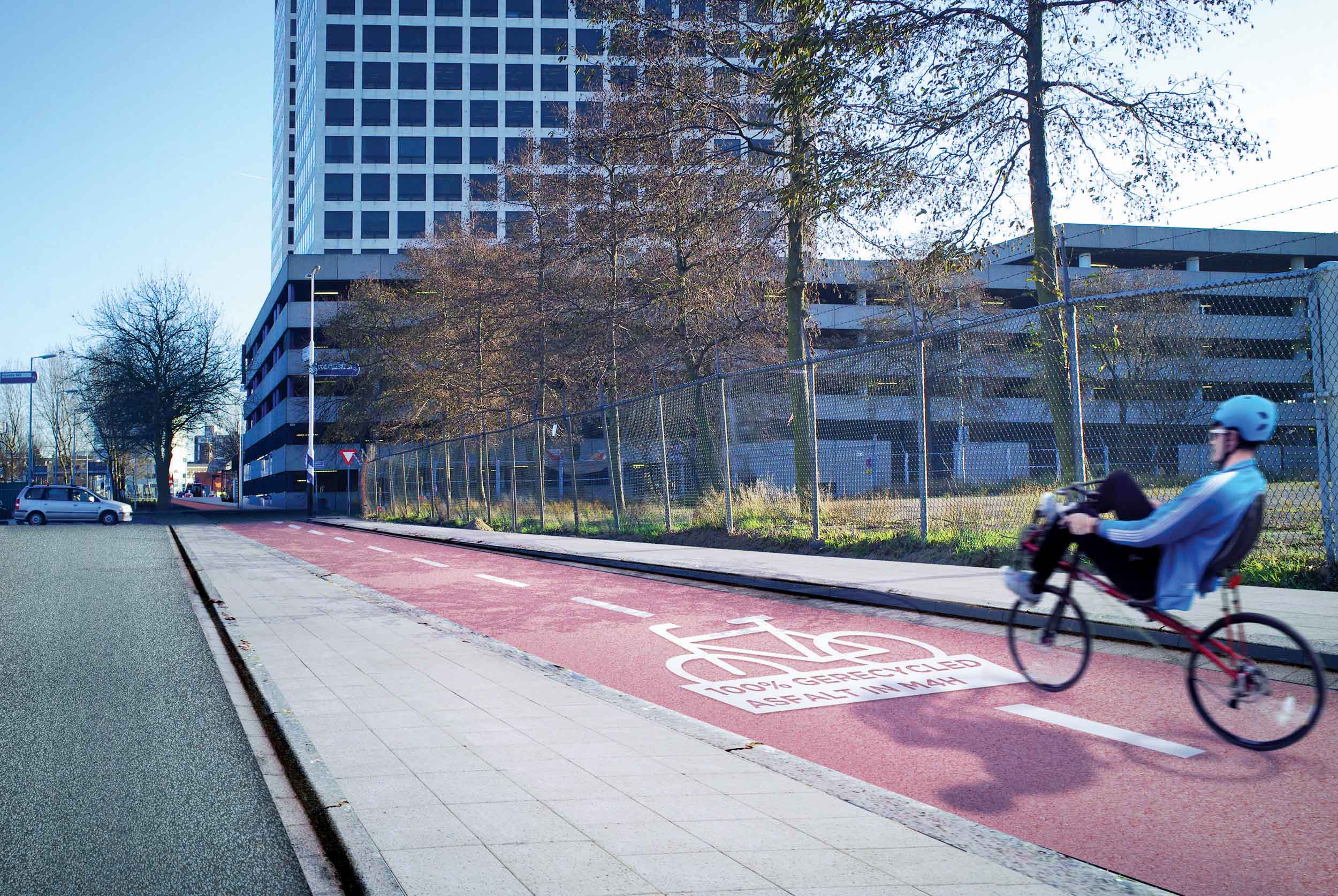
A new cycle lane in Rotterdam features recycled asphalt in its construction, benefiting from the additive technology developed by Arizona Chemical
RSSArizona Chemical’s bio-additive allows 100% recycled asphalt for entire road structure
The city of Rotterdam has used an asphalt mix with 100% RAP in all three of its layers, a first for the Netherlands. The road in question is a bike lane, so it won’t be expecting too much of a pounding, but it’s an important step forward for the city’s politicians, asphalt supplier KWS and additive specialist7856 Arizona Chemical.
Arizona Chemical designed its SYLVAROAD RP1000 performance additive with the express aim of allowing a higher proportion of RAP to be used in mixes. Created with products from the paper industry, SYLVAROAD RP1000 is made from pine chemicals Crude Tall Oil and Crude Sulphate Turpentine.
The bicycle lane is in the Merwe-Vierhavens area of Stashavens Rotterdam in an area earmarked by the authorities in late 2014 for trialling innovations. Other technologies under test on Lap op Straat – or Lab Street - include luminous street furniture and talking rubbish bins.
In order to work with 100% RAP, asphalt plants require different heating technology, explains Arizona Chemical’s business unit director, roads and construction Bas Hennissen. “Normally you have a big flame in a drum to heat the bitumen, but if you use a flame with a lot of RAP, you ruin the bitumen in the RAP,” he says. “Instead, for high proportions of RAP, heat is applied indirectly from outside so that you can increase the amount of RAP without it deteriorating.”
The Netherlands already uses higher proportions of RAP than many parts of the world, and has employed mixes containing 100% RAP in the base layers of roads already. KWS regularly works with mixes containing 70% RAP and has used SYLVAROAD RP1000 for such projects, says Hennissen.
Since the RAP was sourced locally - from a road in another part of Rotterdam – the bicycle lane trial is a good news story for Rotterdam’s politicians who want to demonstrate sustainable development. City alderman Pex Langeberg said: “This is a strong example of the Circular Economy in action. Now old asphalt can be reused in a large number of roads in both the city and the port of Rotterdam.”RSS
The city of Rotterdam has used an asphalt mix with 100% RAP in all three of its layers, a first for the Netherlands. The road in question is a bike lane, so it won’t be expecting too much of a pounding, but it’s an important step forward for the city’s politicians, asphalt supplier KWS and additive specialist
Arizona Chemical designed its SYLVAROAD RP1000 performance additive with the express aim of allowing a higher proportion of RAP to be used in mixes. Created with products from the paper industry, SYLVAROAD RP1000 is made from pine chemicals Crude Tall Oil and Crude Sulphate Turpentine.
The bicycle lane is in the Merwe-Vierhavens area of Stashavens Rotterdam in an area earmarked by the authorities in late 2014 for trialling innovations. Other technologies under test on Lap op Straat – or Lab Street - include luminous street furniture and talking rubbish bins.
In order to work with 100% RAP, asphalt plants require different heating technology, explains Arizona Chemical’s business unit director, roads and construction Bas Hennissen. “Normally you have a big flame in a drum to heat the bitumen, but if you use a flame with a lot of RAP, you ruin the bitumen in the RAP,” he says. “Instead, for high proportions of RAP, heat is applied indirectly from outside so that you can increase the amount of RAP without it deteriorating.”
The Netherlands already uses higher proportions of RAP than many parts of the world, and has employed mixes containing 100% RAP in the base layers of roads already. KWS regularly works with mixes containing 70% RAP and has used SYLVAROAD RP1000 for such projects, says Hennissen.
Since the RAP was sourced locally - from a road in another part of Rotterdam – the bicycle lane trial is a good news story for Rotterdam’s politicians who want to demonstrate sustainable development. City alderman Pex Langeberg said: “This is a strong example of the Circular Economy in action. Now old asphalt can be reused in a large number of roads in both the city and the port of Rotterdam.”RSS

